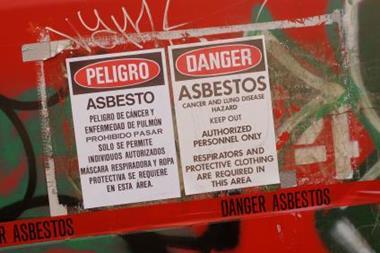Governments are increasingly willing to use trade sanctions as a political tool, and can put them in place quickly. Businesses must work hard to keep on top of regulatory changes
On 13 December it was reported that Iran had threatened to close the Strait of Hormuz as a response to the threat of sanctions against it. The incident provides a timely opportunity to assess how difficult it is for international businesses to keep up with trade sanctions and not get caught out.
Economic sanctions were traditionally issued by the United Nations and other international institutions (for example,
the Arab League). But international co-ordination takes time and as a result sanctions were frequently imposed well after the event that triggered them.
Today, as events in Iran demonstrate, sanctions have become a geopolitical tool that governments are increasingly willing to use, and quickly, without obtaining widescale international consensus. As a result, businesses are having to keep track of a much more complex and fast-moving regulatory environment.
Currently, sanctions may be co-ordinated through international bodies such as the UN and EU, or by smaller interest blocs. The level of implementation by different countries is hugely variable.
As a result, international businesses must stay abreast of UN/EU sanctions, and their level of implementation, as well as those issued by individual countries and how they are interpreted and implemented.
The recent sanctions imposed on Iran by the USA, UK and Canada, which led to the Hormuz closure threat, show how quickly trade restrictions can be applied. After alleged Iranian plans to murder the Saudi ambassador to Washington escalated fears over Iran’s nuclear plans, sanctions were imposed in more haste and with less pre-warning than usual.
So what should companies do to ensure that they keep on the right side of fast-moving international sanctions laws?
Before you enter into a transaction:
1) Identify the genuine geographic source of the product or service that you are trading
It sounds obvious but at least this way you’ll be able to identify which sanctions you might be breaching.
2) Think through the entirety of the value chain and the contractual chain
Often not only is a particular sector targeted - for example the ban on trade in Iranian crude oil and petroleum products - but also the financing and insurance of that trade, and all elements of the supply chain, including warehousing and distribution. Consider the jurisdictions involved in relation to the goods and services that are core to the contract. Where are service providers - banks, insurers, transport and warehousing firms - located?
3) Review the current sanctions environment
Use an adviser with specialist expertise on particular sectors or geographies.
4) Contact service providers to check they are prepared to provide the services you need in the countries you operate in
Will your banks accept payments from entities located there? Will you be able to obtain appropriate insurance?
Doing the deal:
5) Consider drafting into your contract provisions to pass some of the risk onto others in the supply chain or service chain
For example, if you are asked to supply goods to a company with significant US interests, you may have to give warranties that your company complies with US sanctions. You need to consider whether you want a similar warranty from your suppliers and to consider whether this is a warranty that you can actually give.
If you are not covered by US sanctions, are you prepared to warrant that you will comply with US sanctions? Do you have commercial leverage to negotiate anything else? It might be possible to negotiate that you will comply with US sanctions in relation only to this particular deal.
Ben Knowles is a partner at commercial law firm Clyde & Co



















No comments yet